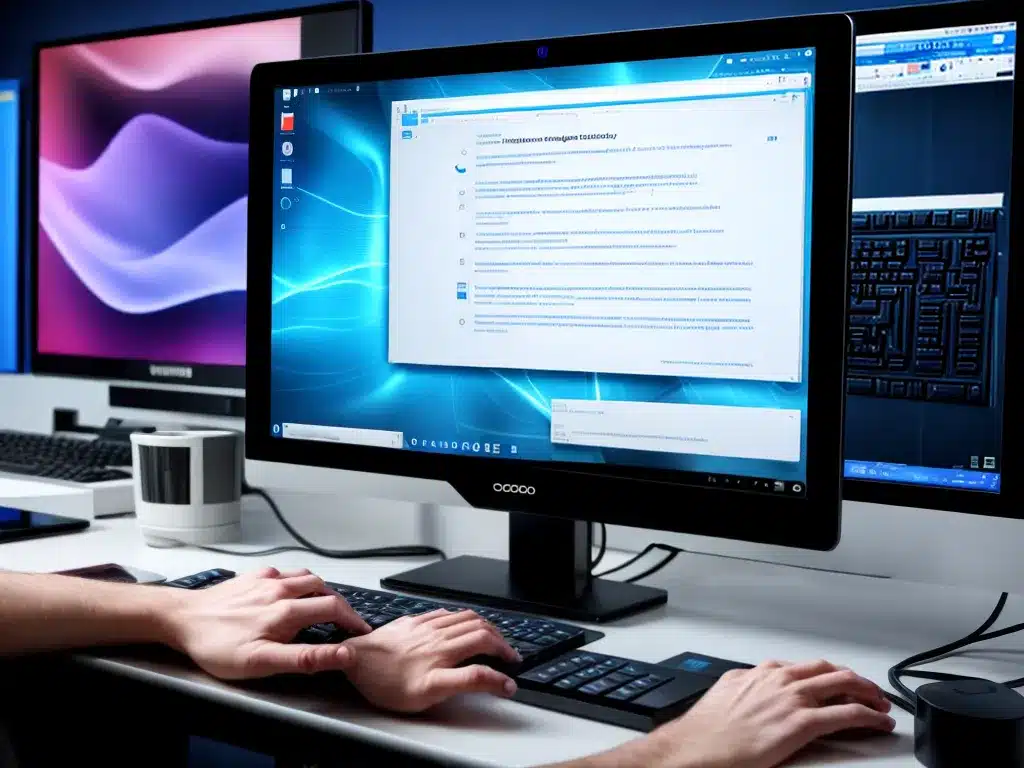

Security for our computers and devices is an extremely important issue that we all should take seriously. With cyber crime on the rise, taking steps to increase our security can help prevent our sensitive information from being compromised. Implementing good security habits and utilizing the proper tools can go a long way in keeping our computers safe. In this article, I will outline some simple yet effective steps you can take to significantly boost your computer’s security.
Keep Your Software Up-To-Date
One of the most basic yet crucial things you can do is keep all of your software up-to-date. This includes your operating system, apps, and browser. Software companies regularly release security patches to fix vulnerabilities as they are discovered. However, if you do not install these updates in a timely manner, you leave open holes that hackers can exploit to gain access.
To ensure you are receiving updates, enable automatic updates on your devices whenever possible. You should also periodically check for new updates manually. Updating frequently eliminates vulnerabilities before cyber criminals can take advantage of them.
Use Strong Passwords
Weak passwords are a prime target for hackers. They allow easy access into your devices and online accounts. To properly secure your system, it is essential to use strong, complex passwords.
Some tips for creating secure passwords:
- Use a minimum of 12 characters, combining upper and lower case letters, numbers, and symbols
- Avoid common words or phrases that can be easily guessed
- Do not use personal information like your name or birthday
- Use unique passwords for each account rather than reusing the same password
It can be challenging to remember many difficult passwords. Consider using a password manager app to securely generate and store strong passwords.
Enable Two-Factor Authentication
Adding an extra layer of security beyond passwords is critical. Two-factor authentication (2FA) requires you to provide two forms of identification to log in. This is often your password plus a code generated by an app or sent via text.
With 2FA enabled, a hacker would need access to both your password and your phone to break in. This provides excellent protection for your sensitive accounts. Enable 2FA on any service that offers it, especially email, banking, and social media.
Be Wary of Public Wi-Fi Networks
Public Wi-Fi networks at coffee shops, hotels, airports, etc. are commonly unsecured or have weak security. Connecting to these networks on your personal devices can potentially allow others access to your information.
When using public Wi-Fi, avoid accessing any sites where you will enter passwords or sensitive data. Only use sites that are fully encrypted with HTTPS. Consider using a VPN (virtual private network) while on public networks to encrypt your connection.
Install Security Software
Investing in comprehensive security software, such as antivirus and anti-malware tools, can detect and block many threats. Security software can identify vulnerable areas, prevent risky downloads, and stop unauthorized access attempts.
Conduct research to find highly rated options that offer complete protection. Check that the software is updated frequently so that it can combat new viruses and hacking techniques. Run scans regularly to catch issues early before they can spread or cause damage.
Practice Safe Browsing Habits
Being cautious and attentive while browsing online goes a long way in enhancing security. Avoid clicking on suspicious links in emails or online ads. Only download software from reputable sources. When submitting sensitive information online, verify that the site uses HTTPS security.
Also be careful when using public computers in libraries, hotels, etc. Never save passwords or leave your accounts logged in on a shared device. The safest approach on public machines is to not access any personal accounts at all. Practicing secure browsing habits keeps your information protected.
Back Up Your Data
As a last line of defense, regularly backing up your computer’s data provides an essential safeguard. Backups save copies of your files to another location, either online cloud storage or an external hard drive. If your computer is damaged, infected with ransomware, or otherwise compromised, you can easily restore your system from the backup.
Perform backups daily of any important documents, photos, or other media. Store backups in multiple locations for redundancy. Having intact backups can save you from catastrophic data loss.
Conclusion
Implementing strong cyber security measures requires some time and effort up front. However, putting in place the right protections will pay off immensely by keeping your devices and data secure. Following the simple yet vital steps outlined here will help defend you from the vast majority of threats.
The most important actions to take are keeping software updated, using strong unique passwords, enabling two-factor authentication, being cautious on public Wi-Fi, running security scans, and backing up your data. Making computer security a habit will enable you to avoid becoming a victim of cyber crime.












